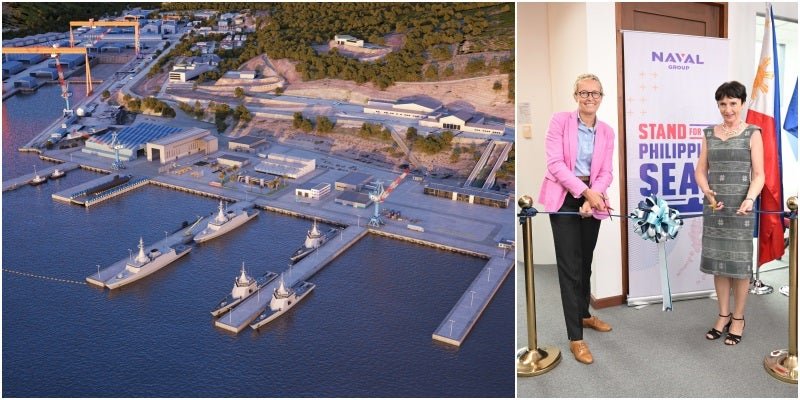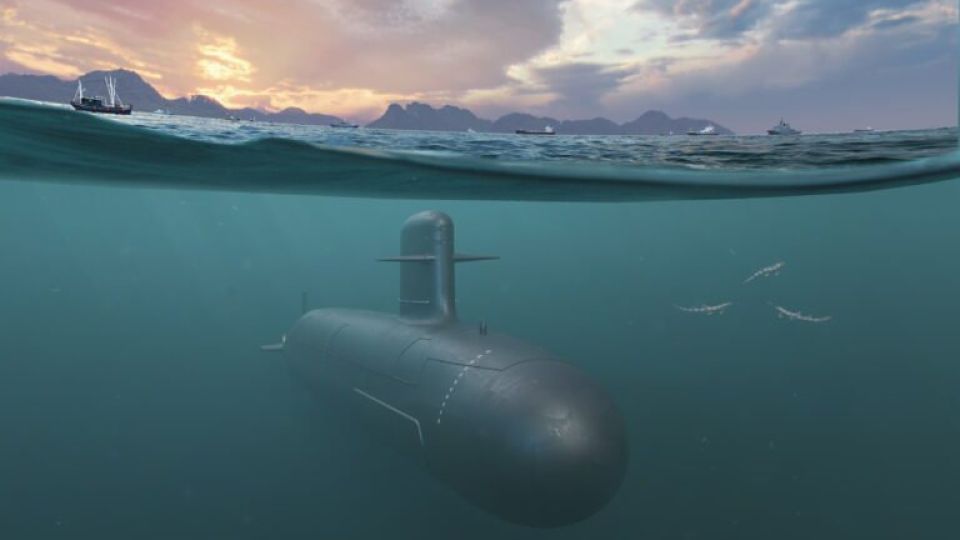July 17, 2023
MANILA – France has taken another step toward enhancing its security ties with the Philippines with the opening of an office in the Philippines by French defense company Naval Group, in a bid to export its Scorpene-class submarines to the Philippine Navy.
A ribbon-cutting ceremony for the new office in Makati City was held on July 12, which happened to be the seventh anniversary of the historic arbitration ruling that rejected China’s sweeping claims in the South China Sea.
The event was attended by French Ambassador Michèle Boccoz, executives of Naval Group, and representatives of the Department of National Defense and the Philippine Navy.
“It’s a very important step forward to ensure our commitment to invest in the country in the long run,” Loic Beaurepaire, Naval Group corporate sales director for the Philippines, said in a media briefing a day after the office launching.
Naval Group—the leading contender for the Philippine Navy’s submarine acquisition plan — has offered to supply two diesel-electric Scorpene-class submarines as part of a submarine force package that would include technology transfer, training, and a maintenance yard in Agila Shipyard in Subic Bay, a base facing the West Philippine Sea where the Navy currently keeps its biggest ships.
The midsize conventional submarine is used by at least four navies including Chile, Malaysia, India, and Brazil. It has a range of more than 18,520 kilometers (10,000 nautical miles), space for a holding a crew of 31 sailors, and a sea endurance of 80 days.
‘Intelligence, deterrent’
But it would take five years before the first submarine unit can be delivered to the Philippines if a deal is signed, with the second to arrive the following year, Beaurepaire said.
The offer involves a “100 percent financing solution,” which is a long-term loan of up to 20 years through a government-to-government deal.
Naval Group, which serves some 50 navies around the world, is banking on its long experience in the defense field.
According to its website, it has been working alongside the French Navy for over 400 years as a designer, manufacturer, and integrator of surface ships and submarines.
The French Navy ensures the sovereignty of the second-largest maritime domain in the world after the United States.
Aside from Naval Group, South Korea’s DSME, and Spain’s Navantia have also offered to build submarines for the Philippine Navy.

‘THE LONG RUN’ A “rendering” (left) by Naval Group shows the planned maintenance yard in Subic Bay for Scorpene-class submarines being offered to the Philippine Navy. The launching last week of the French company’s Philippine office was attended, among others, by Naval Group executive vice president Marie-Laure Bourgeois (wearing glasses) and French Ambassador Michèle Boccoz, shown standing before a sign that reads “Stand for Philippine Seas.” —PHOTOS FROMNAVAL GROUP
The Philippines, an archipelago with one of the world’s longest coastlines, is one of the few countries in the region without a submarine force. It has been aiming to beef up its military capabilities in the face of China’s growing threat but its modernization has always been short of funds.
“At peacetime, you use a submarine force for intelligence gathering. When you are in crisis time, it is a deterrent tool… The key aspect of a submarine force is the protection of the external defense of the territory… It is the only lethal asset of the naval domain,” Beaurepaire said.
“The lethal effect is very important. It will change the behavior of your opponent, that’s why it is a game changer. A submarine will reinforce all of the assets of the Philippine Navy… It’s a force multiplier,” he added.
‘We are much present’
Beaurepaire said Naval Group is awaiting the Philippine government’s decision on the submarine acquisition.
Senate President Juan Miguel Zubiri said in May the government could allot P70 to P100 billion for the purchase of submarines.
As part of its continuing efforts to strengthen security ties with the Philippines, France will also send a full-time resident defense attaché to the country “after so many years” since the last one, Boccoz said on the sidelines of the Bastille Day celebration on July 14.
“We have a lot more activities. As you see we are much more present, …we’re closer in terms of defense cooperation,” she said.
France has been active in sending observers in major military exercises such as the “Balikatan” and “Sama-Sama.”
More French navy ships are expected to visit the country in the months ahead, amid concerns over China’s actions in the region.
“We are a nation of the Indo-Pacific and we really care about what happens in this region,” Boccoz said.


